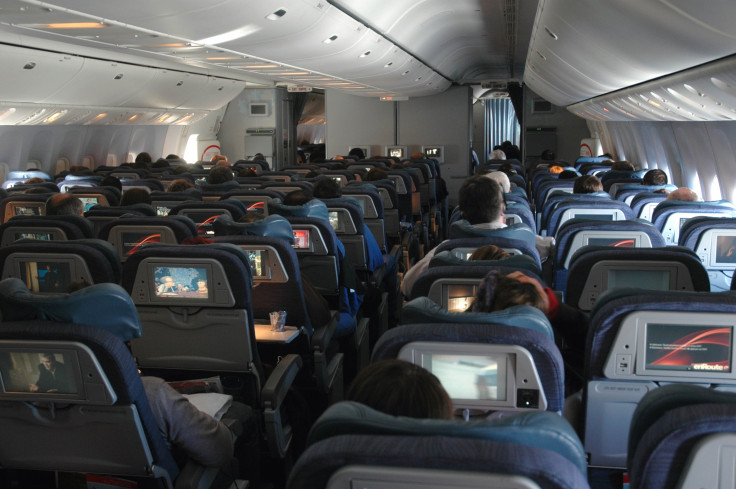Are You Ready For A Medical Emergency Up In The Air? Doctors And Travelers Benefit When They 'Think Ahead'

It’s a terrifying thought, being thousands of feet in the air when you or someone nearby experiences a medical emergency. It's a thought all travelers, physicians, and healthcare providers consider each time a plane full of passengers with varying health conditions and concerns takes off. Luckily, a new article published in the New England Journal of Medicine examines the situation, and offers important advice for medical professionals about dealing with in-flight medical emergencies. It also has some helpful tips for travelers — tips that may end up saving a life.
The article explains that the number of medical emergencies on flights are likely underreported, with varying statistics available on the matter. The most deadly in-flight emergency is cardiac arrest, though: While it is responsible for only 0.3 percent of incidents, it has caused 86 percent of deaths. This mortality rate is despite regulations that require the presence of a defibrillator on planes.
Often, doctors or nurses on flight will have no equipment at all, and this is why senior author Dr. William J. Brady, of the University of Virginia School of Medicine, urges them to think ahead.
“We want physicians to think in advance about a situation,” he said in a statement. “You’re on a small commuter plane, you’re on a large transoceanic flight, whatever. Something happens. Think about the way you’re going to approach that.”
The article goes on to address a host of scenarios, including psychiatric emergencies, stroke, trauma, and contagious diseases. Though there is no possible way for an airline to prepare for all kinds of emergencies, it’s best to learn about the most common and deadly.
“You need to be intelligent,” Brady said. “If you’re not feeling well, if you’re ill, if you’re just getting over an illness, if you’re just developing an illness, if you’ve been injured on the way to the airport or recently, if you’ve just had surgery, in situations like that you need to realize that you’re going up in an environment that can be compromising medically.”
Though the piece goes into detail about different factors of medical emergencies, including legal ramifications and in-flight procedures, travelers can protect themselves against emergencies, too; being self-aware is key. Brady warns that even with appropriate cabin pressure, the amount of oxygen in an aircraft is lower, which could cause physiological stress. He pointed out that those who have just undergone surgery should not be flying without medical approval, and anyone developing a fever or cough should steer clear of flights for both their own and others’ sake.
“Be smart,” he said. “Don’t get on an aircraft and have a bad event occur just because you’re in a rush to get somewhere.”
Source: Campion EW, Nable JV, Tupe CL, Gehle BD, Brady WJ. In-Flight Medical Emergencies during Commercial Travel. New England Journal of Medicine. 2015.



























